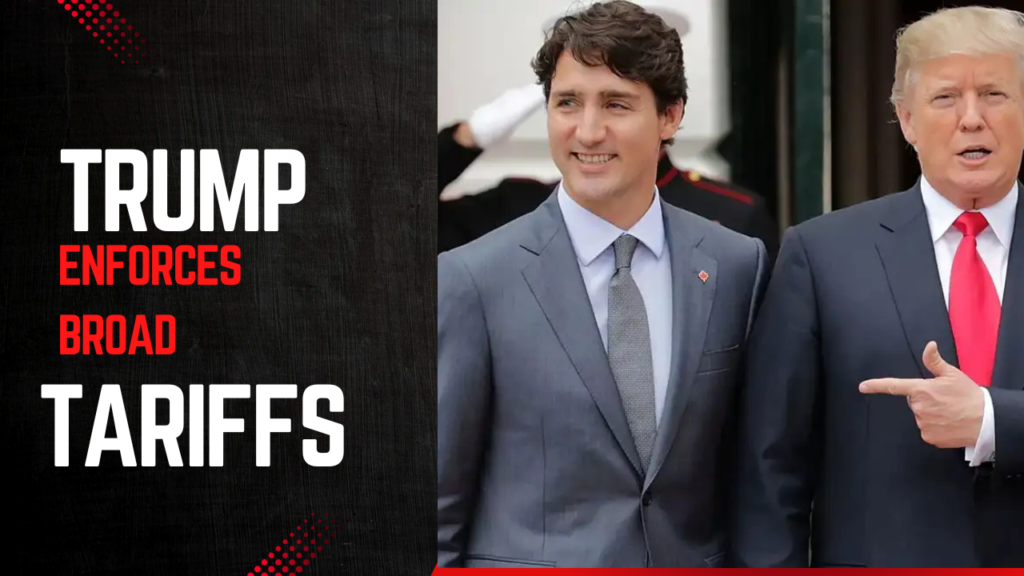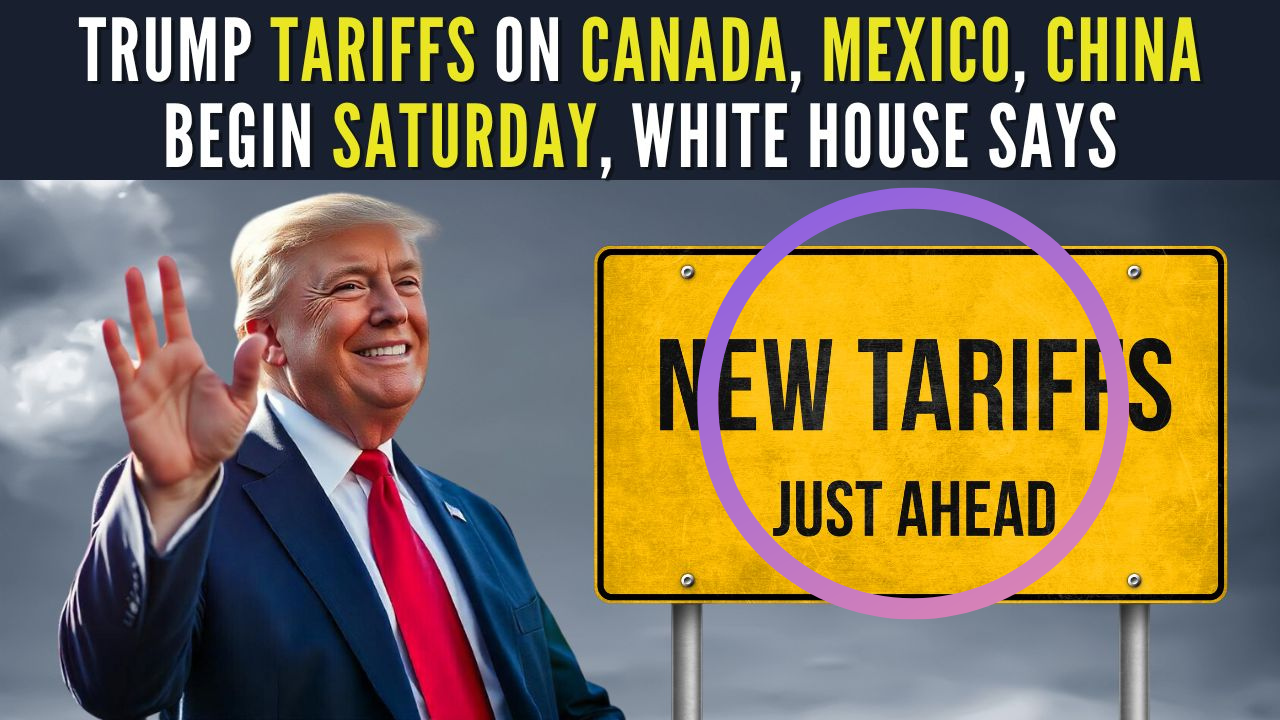Trump Imposes Tariffs on Canada, China, and Mexico, Citing National Security Concerns
U.S. President Donald Trump on Saturday announced new tariffs, citing the “major threat” posed by “illegal foreigners” and drug trafficking. He ordered a 25% tariff on imports from Canada and Mexico and a 10% tariff on goods from China. This move has sparked backlash from Ottawa and Mexico City.

Key Points on Trump’s Tariffs:
- Trump signed three executive orders imposing the tariffs, raising concerns about a potential trade war.
- “We need to protect Americans, and as President, it is my duty to ensure everyone’s safety. I promised during my campaign to stop the flood of illegal foreigners and drugs at our borders, and Americans voted overwhelmingly in favour of this,” he wrote on social media.
- The 78-year-old, who had repeatedly threatened tariffs upon returning to office, cited the International Emergency Economic Powers Act to justify his decision.
- The White House described the threat posed by “illegal aliens” and drug trafficking as a “national emergency.”
- While a 25% tariff will apply to Canadian and Mexican exports, Ottawa will receive a reduced 10% tariff on energy resources “until the crisis subsides.” The tariffs will take effect on Tuesday.
- A White House statement blamed the Biden administration’s policies for creating “the worst border crisis in American history,” claiming that over 10 million illegal foreigners, including an increasing number of Chinese nationals and individuals on the terrorism watch list, attempted to enter the U.S. under Biden’s leadership.
Global Backlash Against Trump’s Tariffs: Canada, Mexico, and China Respond with Countermeasures
In response to Trump’s tariffs, Canadian Prime Minister Justin Trudeau stated, “We didn’t want this, but Canada is ready.” Shortly after, he announced a 25% retaliatory tariff on $106 billion worth of U.S. goods.
Mexican President Claudia Sheinbaum Pardo also hit back, emphasising that “problems are solved through dialogue and negotiation, not tariffs.” She posted on X, “I am instructing the Economy Secretary to implement Plan B, which includes tariff and non-tariff measures to protect Mexico’s interests.”
China strongly opposed the new U.S. tariffs and vowed to take similar retaliatory actions.
Last week, Trump announced a 25% tariff on Colombian goods after the country refused to accept deportation flights carrying migrants expelled from the U.S. However, both nations later reached an agreement.
This week, Trump also pledged to impose future tariffs on the European Union. Additionally, he issued a warning to BRICS nations—Brazil, Russia, India, China, and South Africa—threatening a 100% tariff on their exports if they attempt to replace the U.S. dollar as the dominant currency in international trade. BRICS countries have been exploring ways to reduce their reliance on the U.S. dollar for years.

